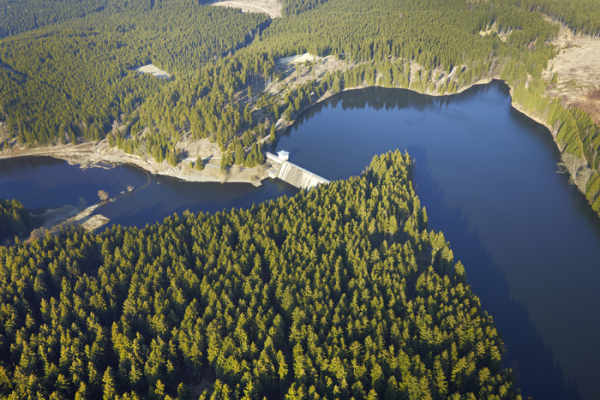The water stored in reservoirs ensures our supply of drinking water. Good water quality is therefore important - but is at significant risk due to climate change. In a model study of the Rappbode reservoir in the Harz region, a research team from the Helmholtz Centre for Environmental Research (UFZ) demonstrated how the climate-related disappearance of forests in the catchment area for Germany's largest drinking water reservoir can affect water quality. The problem of such indirect consequences of climate change is seriously underestimated, the scientists warn in Water Research. Water quality is of critical importance, especially for drinking water reservoirs, as subsequent treatment in the waterworks must continually meet high standards.
Heat waves, drought, floods, forest fires - the consequences of climate change are increasing and are changing our environment. A prime example is the countryside in the catchment area for the Rappbode reservoir in the eastern Harz region. This is the largest drinking water reservoir in Germany and provides drinking water for roughly one million people. Long periods of drought over the years from 2015 to 2020 have so severely weakened the tree population in the Harz region that parasites such as bark beetles have been able to propagate. This further exacerbated the effect: The trees were further damaged and quickly died off. "Over the past four years, the Rappbode catchment area, characterized by conifers, primarily spruce, has lost over 50 percent of its forest," says UFZ hydrologist and last author Prof. Michael Rode. "This massive forest dieback is advancing rapidly and is dramatic. This will have consequences for the drinking water reservoir."
Read more at: Helmholtz Centre for Environmental Research
The Rappbode reservoir in the Harz region is surrounded by forests and is the largest drinking water reservoir in Germany. (Photo Credit: André Künzelmann/UFZ)


